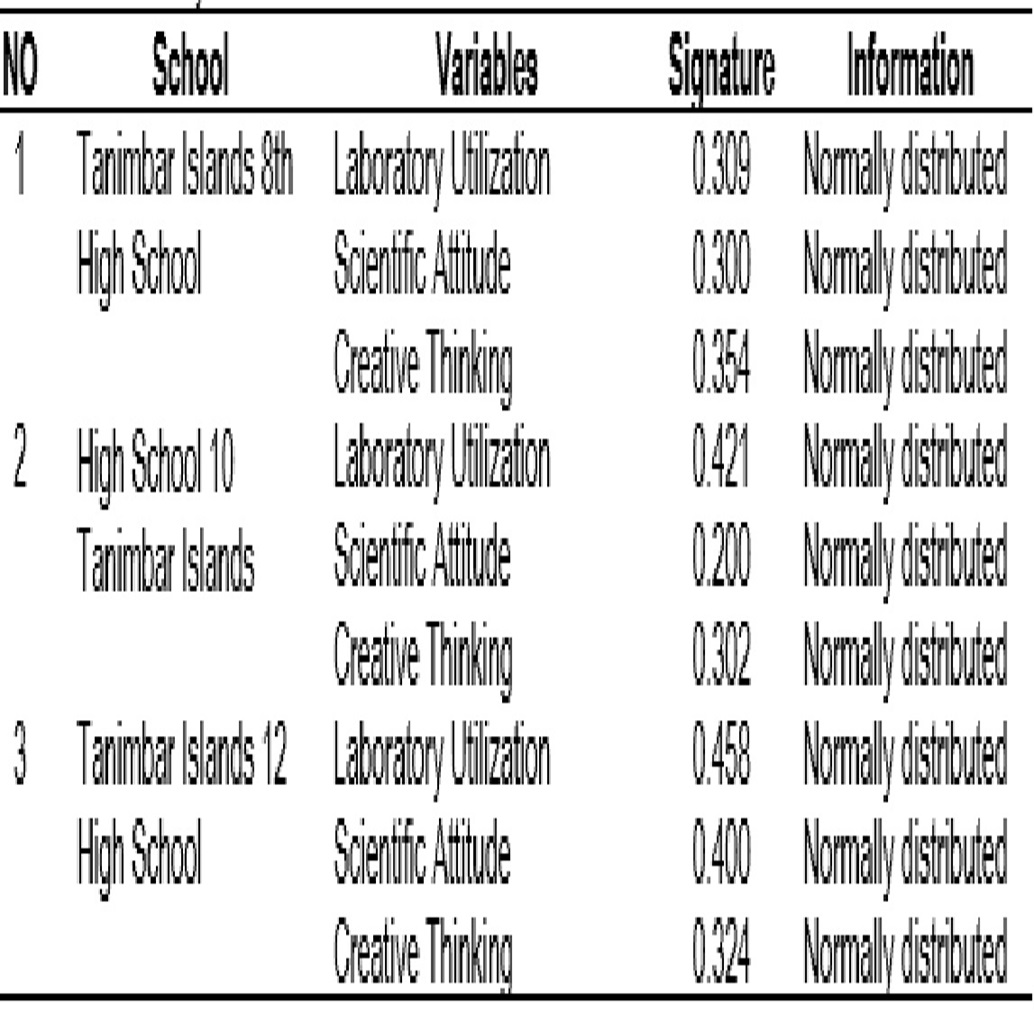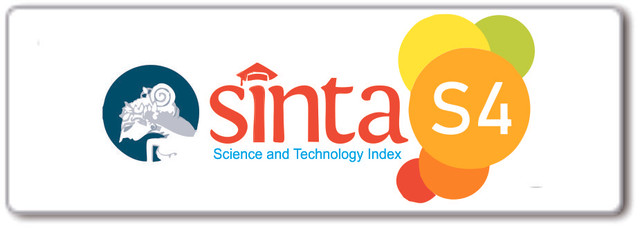Utilization of laboratories through scientific literacy activities to improve scientific attitudes and creative thinking
Abstract
One way to empower students' potential is by providing and utilizing laboratories, however, in several high schools in the Tanimbar Islands Regency, only a handful of teachers use laboratories as a means. biology learning for practical work in the process of teaching and learning activities, while most only deliver learning material without any practical activities in the laboratory. The aim of this research is to determine the effect of using laboratories through scientific literacy activities on the scientific attitudes and creative thinking of high school students in the Tanimbar Islands Regency. This type of research was quasi-experimental research. The population is all class X students of Tanimbar Islands State high school 8, Tanimbar Islands State high school 10, Tanimbar Islands State high school 12, totaling 75 students. Data analysis used Anova and continued with the Duncan test with the help of SPSS Version 27. The results showed that the use of laboratories through scientific literacy activities had an effect on the scientific attitudes of high school students in the Tanimbar Islands Regency with a value of sig. amounting to 0.018 < 0.05 and the use of laboratories through scientific literacy activities has an effect on the creative thinking of high school students in the Tanimbar Islands Regency with a sig value of 0.030 < 0.05.
Downloads
References
Ahdila, AI, Masyukuri, M., Hastuti, B. (2022). Effectiveness of Laboratory Utilization in Chemistry Learning at Sma Negei 2 Boyolali. Journal of Chemical Education 11(2), 205-210.
Erniwati., et al. (2020). Kendari City High School Students' Scientific Literacy Ability: Description and Analysis. Journal of Coil Physics 3(2), 99-108.
Wisdom, Nur & Nurzila, Kiki. (2022). The Influence of Laboratory Utilization and Character Values on Science Learning Outcomes for Class VIII Students. Research journal . 3(1), 19-25
Isti, Fadilah Solikhah., et al. (2020). Analysis of High School Students' Science Literacy Ability in Biology Learning Using Noslit. Journal of the Biology Education Study Program 10(1), 27-34
Lubis, N. F. 2024. Laboratory Profile and Implementation of Chemistry Practicum at SMA Negeri 2 Padangsidimpuan. Journal of Education and Development. Vol 2. No 2.. 299-305
Sulistyowati, D., Putri, SC, Sumiati, T. (2016). The Effect of Applying Inquiry Methods on Students' Scientific Attitudes in Elementary School Science Learning. Indonesian education university.
Wijaya, MS (2017). The Influence of Virtual Practicum on Class X Students' Creative Thinking Skills on Vertebrate Material. Thesis. Faculty of Tarbiyah and Teacher Training, Raden Intan State Islamic Institute, Lampung.
Yasiro, Luluk Rachmatul., et al. (2021). Analysis of Students' Creative Thinking Ability in Solving Global Warming Material Questions Based on Student Learning Achievement. Banua Science Education Journal 1(2), 69-72
Yulianti, U., Yuliantina, N. G., & Roiyasa, N. (2021). Training on Preparing Modules to Improve the Quality of Literacy for Teachers at SMA Negeri 4 Purwokerto. Bemas: Community Journal, 1(2), 88-94

Copyright (c) 2024 Asna Collins Nimreskosu

This work is licensed under a Creative Commons Attribution-NonCommercial-ShareAlike 4.0 International License.
Authors who publish with BIOEDUPAT: Pattimura Journal of Biology and Learning agree to the following terms:
- Authors retain copyright and grant the journal right of first publication with the work simultaneously licensed under a Creative Commons Attribution License (CC BY-NC-SA 4.0) that allows others to share the work with an acknowledgment of the work's authorship and initial publication in this journal.
- Authors are able to enter into separate, additional contractual arrangements for the non-exclusive distribution of the journal's published version of the work (e.g., post it to an institutional repository or publish it in a book), with an acknowledgment of its initial publication in this journal.
- Authors are permitted and encouraged to post their work online (e.g., in institutional repositories or on their website) prior to and during the submission process, as it can lead to productive exchanges, as well as earlier and greater citation of published work.








 This work is licensed under a
This work is licensed under a 